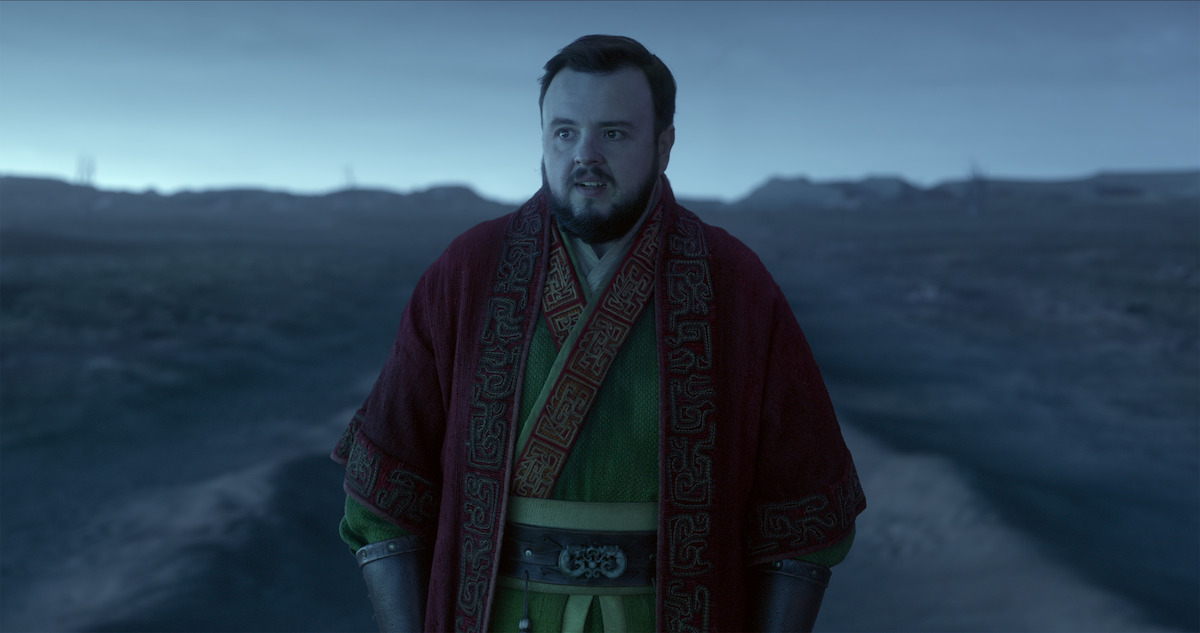The source material for 3 Body Problem, Netflix’s new series based on a novel by Chinese author Liu Cixin, with its decades-spanning, intergalactic, multi-dimensional subject matter, was always going to be tough to wrangle. These are the showrunners to do it, though—two of whom managed to cajole a zombie dragon into melting a 80-story wall of ice on small screens across the world in Game of Thrones back in 2017.
Liu Cixin’s novel (the first of what is now a series of novels) at its most basic level explores what happens if one of these "anyone out there?" signals we’re supposedly sending into space ever actually gets an answer. The show adheres to that main premise but it’s also made a few strategic changes.
There is, of course, some Westernization. In the novel, most of the characters are Chinese, and most of the action takes place in China, but in the Netflix version, much of the action takes place in the UK with a more diverse set of characters—an understandable decision given that a Chinese version of the show already exists. The most interesting change, however, is that they seem to have turned Cixin’s main character into an ensemble of characters. One runs the nano-technology company that the novel’s main character ran, a different character discovers and plays the weird golden VR helmet video game that the novel's main character discovers and plays, and there are yet others whose roles are still unclear two episodes in. There's no real sense of a "main" character like the book had. It’s possible the writers wanted a Harry Potter-style "cooperative" element where it’s not you saving the world; it’s you and your friends. Yes, it’s particularly ironic that the western version is less about an individual than the original Chinese source material, but the universe can surprise us sometimes.
The show starts, as the novel does, with a scene from the Cultural Revolution in China. A university professor dies after being brutally beaten for refusing to back down from his convictions about the value of science. In the crowd is his daughter, Ye Wenjie, suffering the first of the many injustices that will inform the trajectory of her character. In both works, the opening is one of its most powerful, captivating scenes, and the excellent Zine Tseng makes young Wenjie's anguish palpable.
The show's focus switches back and forth between action in modern-day UK and 1960s China, and for whatever reason, it generally seems more comfortable in 1960s China. In the first episode, when the story takes us to the present, the acting becomes a little uneven and the dialogue a little contrived, especially in a somewhat cringey karaoke bar scene.
After that rough patch, though, the show hits a nice rhythm. In the second episode, the central mystery presents itself more fully: What's behind all these scientists all killing themselves? Why are the stars in the night sky blinking on and off? Why are particles behaving weirdly in colliders? In addition to the intrigue, we’re treated to a few extremely cool scenes that take place in the VR world the characters enter. The show also makes room for humor, often provided by Jack Rooney (our old friend from Game of Thrones, John Bradley) or gruff investigator Da Shi (Benedict Wong of Dr. Strange fame).
The story in the book wriggles around a lot thematically, touching a bit on environmentalism, a bit on oppression and its consequences, and a lot on how awesome science is. If it all amounts to anything, it's "to be or not to be" on a species level. It will be interesting to see if the show will likewise avoid classification. Either way, it’s off to a fun start.
